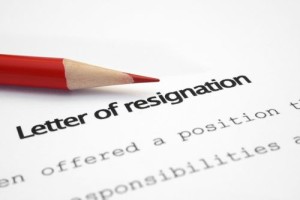To quit or not to quit. That is not only the question, it is often the ultimate question!
There are times when we feel enough is enough and we feel a huge urge to quit our jobs. And we don’t because we aren’t quite sure if that’s the right thing to do. Often we go through this dilemma over and over again. In May 2015, a person I eventually coached, called me to tell me that he felt like quitting every Monday morning!
Here are a few points to ponder upon whenever you go through this dilemma:
1) Got enough PRACTICE?
People leave bosses, not jobs. A boss is usually a great person to learn from. In some ways he/ she becomes a role model. We learn from our boss how to be and how not to be and what to do and what not to do.
Every person we have trouble with is actually a Practice Partner. A nagging wife helps us PRACTICE staying calm in the face of nagging. A arrogant client helps us PRACTICE staying unaffected by the arrogance.
Ask yourself – what were you destined to PRACTICE with your boss? You will miss that PRACTICE once you leave the job – which is okay, as long as you have practised enough while you were in the job. Have you used your boss as a practice partner enough?
2) What was the LESSON?
Every job however good or bad brings with it certain lessons and learnings. If we don’t learn those lessons, the lessons chase us in our next job (usually packaged in a different set of trousers!) Learning lessons sets us free.
We we learn lessons, in the next job, we can move on to a DIFFERENT set of lessons. Surely we don’t want to get stuck with the same lessons in each job. If that happens we don’t grow.
Ask yourself – have you learned all the important lessons in this job?
3) It’s not WHAT you do, it’s HOW you do it!
Sometimes the job itself is uninteresting. But it is also true that an interesting person can make an uninteresting job interesting.
Ask yourself – Are you that interesting person who can make your job interesting? If yes, have you used your creativity to bring more life into the job? If no, have you worked on yourself to make yourself interesting?
4) Gave your BEST?
Jobs are like horses. They will take you closer to your goals. Sometimes they are not fast enough. But as a rider you can make them go fast. For that you have to give your best. Your 100%. If you do so, there will be no regret. You will be happy that you gave it all you had and you will accept that the horse went as fast as it possibly could.
I call it the homework principle. I remember how happy and confident I was when I went to school with all my homework done. Enjoyment from a job comes from us doing our best, not necessarily just from the nature of the job
Ask yourself – Did you give your best?
If yes, you may want to consider getting a faster horse. If the horse is getting wild, it’s time to jump off!
5) Our Job is not our WORK
The difference that we make is our work. The contribution that we make is our work.
Our work is our personal mission that provides us with an intrinsic sense of meaning and purpose. Our “job,” in contrast, is a set of responsibilities we fulfil in exchange for various forms of compensation. We get paid to do the job, but the work is its own reward.
On the job we ultimately answer to someone–customers, superiors, board members, investors; in our work we ultimately answer to our own consciences. We can change jobs readily; we change our work only with great effort. In the end our jobs are lines on a resume, while our work is our legacy.
I love the way Robin Sharma puts it. “Whatever you do, become legendary, a master, iconic in your work!”
Whatever the nature of the job, it’s an opportunity to leave a mark. In my younger days I remember how my boss used to go on praising one of his ex team members. She really had left a mark.
If you have to leave the job, leave, but more importantly, leave a mark. You are the best judge of your life and your career. Do what is best for you. Your company will exist forever but your career is finite.
Whatever you do, don’t regret. There is no such a thing as a mistake. There are no mistakes, only outcomes. Every outcome itself is meaningless. The meaning lies in how you respond to the outcome.
One last thing – decision making is all about the ability to deal with the consequences. There are consequences of staying in the job. There are consequences of leaving the job.
Which set of consequences can you better handle?
As for that “Monday morning” client of mine – he hasn’t quit yet! But at least he’s no longer asking “The Question”.

This article comes at the right time…will have it printed and passed on to someone who is in this dilemma…it is a very simple and practical guide…very valuable!!!
Thanks Lynne.. that’s great!
Thank you for your article. Hope it will really help me to come out of Mid life crisis